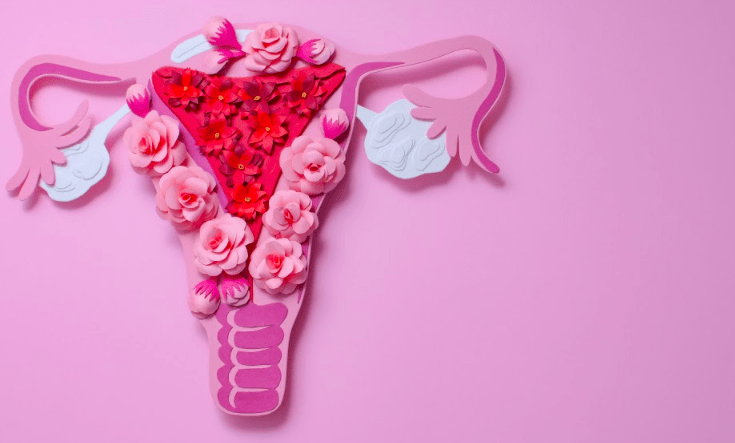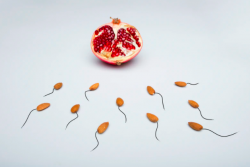So you already have one (or more) kids, and want to grow your family. Secondary infertility is defined as difficulty in conceiving or carrying a child to term, following the birth of a previous child. It can have an incredible emotional toll, no matter how much or how little work it took to have your first child(ren).
Secondary infertility is diagnosed by the same parameters as primary infertility:
- 12 months of trying to conceive
- or 6 months if the female partner is over 35 years of age
Who does it affect?
Secondary infertility affects around 9-12% of couples who have at least one child (1). This is similar to the rate of primary infertility, which is around 10-12%. No statistics tell us whether these are the same or different couples. It is unclear whether it will be a challenge to have another child after one has already conceived with or without difficulty. What we do know is that while there is some overlap, there truly is no direct pattern for many families.
What are the treatments?
The treatments for secondary infertility are more or less the same as for primary infertility. An initial workup that includes hormone blood work, as well as an ultrasound and a hysterosalpingography, are standard at a fertility clinic.
As a Naturopathic Doctor, I consider a person’s previous conception history very important. Some health concerns don’t dramatically change or go away after having a child, like PCOS, endometriosis, and autoimmune conditions like celiac disease or thyroid antibodies.
How common is it that new things come up?
The table below shows ALL the possible causes of secondary infertility. All of them can develop even if they were unknown before, or not an issue for fertility the first time around. Some concerns, like endometriosis, may have been around the whole time, but we’re only finding out about them later when they cause a problem.
| Polycystic Ovarian Syndrome (PCOS) | PCOS is a result of the relationship between genetics and our environment – and it can be affected by lifestyle. Think about your lifestyle before kids and after kids, and if there is a significant difference, it’s possible we’re seeing this come up as a “new” concern that was always kind of there.
Additionally, PCOS affects ovulation, but maybe not every single month – if it’s erratic, it could make it harder to get pregnant some of the time but not every time, which is how it could seem new. |
WORKUP: Bloodwork to measure fasting glucose AND fasting insulin, and get a ratio called a HOMA-IR. This tells us about insulin resistance, which is what drives hormone imbalances, high testosterone, and can stop ovulation. Note that the oft-measured HbA1c, while it also measures blood sugar, is NOT detailed enough to give us information about PCOS.
There is more detailed bloodwork to consider here, like DHEAS, cortisol, testosterone, SHBG, etc, but a skilled functional medicine practitioner will be able to determine what’s useful to you. |
| Endometriosis | While pregnancy and breastfeeding can improve symptoms for many women, symptoms can return when the period returns. The same hormones we need in order to ovulate and get pregnant are the same hormones that can flare endometriosis. Because it is generally a progressive disease, it will get worse with time. There are 4 different stages of endometriosis, but they do not correspond to pain or symptoms, and only possibly correspond to fertility concerns. | WORKUP: In recent years, we have been using a simple blood test that might help rule in endometriosis, called CA-125. It’s not a perfect test, and will miss some cases, but otherwise the only real way to know whether someone has endometriosis or not is with laparoscopic surgery. |
| Pelvic adhesions:
scarring of fallopian tubes or uterus. |
Scarring of the fallopian tubes or uterus that are found to be an issue for secondary infertility are most likely due to surgery. A study on patients with secondary infertility found that a third of patients had an abnormal hysterosalpingograph (HSG). In contrast to primary infertility, where an abnormal HSG was more commonly linked to congenital malformations. (2) | WORKUP: An HSG that is ordered by a medical doctor or fertility clinic doctor can give us some information about the uterine cavity and fallopian tubes. |
| Uterine fibroids or polyps | These can grow at any time. They are generally hormonally driven, so they can be influenced by the hormones of pregnancy, postpartum, and/or breastfeeding – and the intervening cycles before TTC. | WORKUP: An HSG that is ordered by a medical doctor or fertility clinic doctor can give us some information about the uterine cavity. |
| Diminished ovarian reserve (Low AMH) | Largely thought to be related to age, we have seen this number change and vary with a woman’s health. We use it as one of several markers to tell us about a woman’s egg quantity. Another one is the antral follicle count (AFC), which is the number of follicles counted in each ovary on cycle day 3, via transvaginal ultrasound. If both AMH and day 3 AFC are low, I’m usually working to support hormones and general state of health to boost our chances of a really good fertilizable egg each month. | WORKUP: Blood Test for AMH. We also like to see day 3 AFC on ultrasound, and other markers of health like vitamin D, fasting insulin, intake of alcohol, processed food, lack of exercise, etc. |
| Low sperm count | Related to hormones, varicocele (see below), overall health and lifestyle. In primary fertility low sperm count can be affected by unalterable genetic conditions as well, but by secondary infertility we’ve generally ruled those out as an issue. (That is, if his sperm contributed to a previous pregnancy, it’s highly unlikely he had a genetic condition affecting sperm count).
Because sperm health can change month over month, it’s worth updating this test even if it was done before. |
WORKUP: semen analysis |
| Varicocele | A varicocele is like a varicose vein in the testicle, that is present in 15% of men in the general population. Varicoceles decrease sperm production and are the most common cause of male infertility. Approximately 35% of infertile men and more than 70% of men with secondary infertility were reported to have varicoceles.
Not only is sperm count affected by varicocele, but also the DNA integrity of the sperm. Several studies found that DNA fragmentation was significantly decreased after varicocele repair and that a low value on an index of DNA fragmentation was associated with higher rates of spontaneous pregnancy and pregnancy after assisted reproduction technology (ART). (3) |
WORKUP: semen analysis, followed by an ultrasound of the testicles (usually done with a referral to a urologist) |
| Ejaculatory problems | This can be related to overall health. If ejaculation has changed in the years between kids, it’s worth a medical work up to get proper support. | WORKUP: a thorough case history about possible causes, including psychosocial and physiological. Bloodwork would include cholesterol and hs-crp |
| Thyroid antibodies | This is a big one. The immune system is suppressed during pregnancy, and after giving birth there can be a rebound effect, a woman may develop what is called “postpartum thyroiditis” in the 1-12 months after birth.
Typically, women who had thyroid antibodies PRIOR to pregnancy are at higher risk for this happening after. However, very few women are screened or even know that they may have thyroid antibodies, so it appears as a “new” issue postpartum. Note that post miscarriage thyroiditis can also occur, but we don’t have good statistics for how many women it affects. Women with Type 1 Diabetes have a 3x chance of developing thyroiditis postpartum. |
WORKUP: Blood test for TPO antibodies and TG antibodies, as well as TSH
*Naturopathic Doctors working with fertility patients definitely test for these antibodies. We work to get ahead of these results from day 1. Also note that ANYONE TTC should have their TSH (basic thyroid bloodwork) tested, Whether you are working with a fertility clinic or not, or have been trying for a while or not. There is a difference between the TSH range for the normal population (0.5-4.0) vs for fertility (0.5-2.0)! |
| Change in hormones | This is a vague category meant to capture just how much things can change in between kids. It is worth getting a workup for baseline hormones, and this can be done proactively or after trying for some time. | WORKUP: a knowledgeable Naturopathic Doctor who can consider all aspects of your case history, including previous pregnancy and birth story. Blood work can be done by an MD/ND/fertility clinic. Typically we want to see cycle day 3 estradiol, FSH, LH, and day 21 progesterone, prolactin, TSH, antibodies ,and testosterone. |
Frequently Asked Questions
Q: If I used a fertility clinic for my first baby, will I definitely need to use one again for my next?
A: Not necessarily! Interestingly, a woman’s fertility rates seem to increase (albeit slightly) after a woman has given birth.
Q: Is there something you would recommend I get screened for to be proactive?
A: Definitely investigate thyroid function. But do not test just TSH alone. Be sure to test thyroid antibodies (anti-TPO and anti-TG), and free T3 and free T4. The thyroid gland plays a really important role in TTC, and antibodies increase risk of miscarriage.
To learn more about how you can support your fertility, or to book a virtual appointment with a Conceive Health ND, contact us today.
References:
(2) https://doi.org/10.15537/smj.2019.10.24538
(3) https://onlinelibrary.wiley.com/doi/full/10.1007/s12522-014-0181-5










